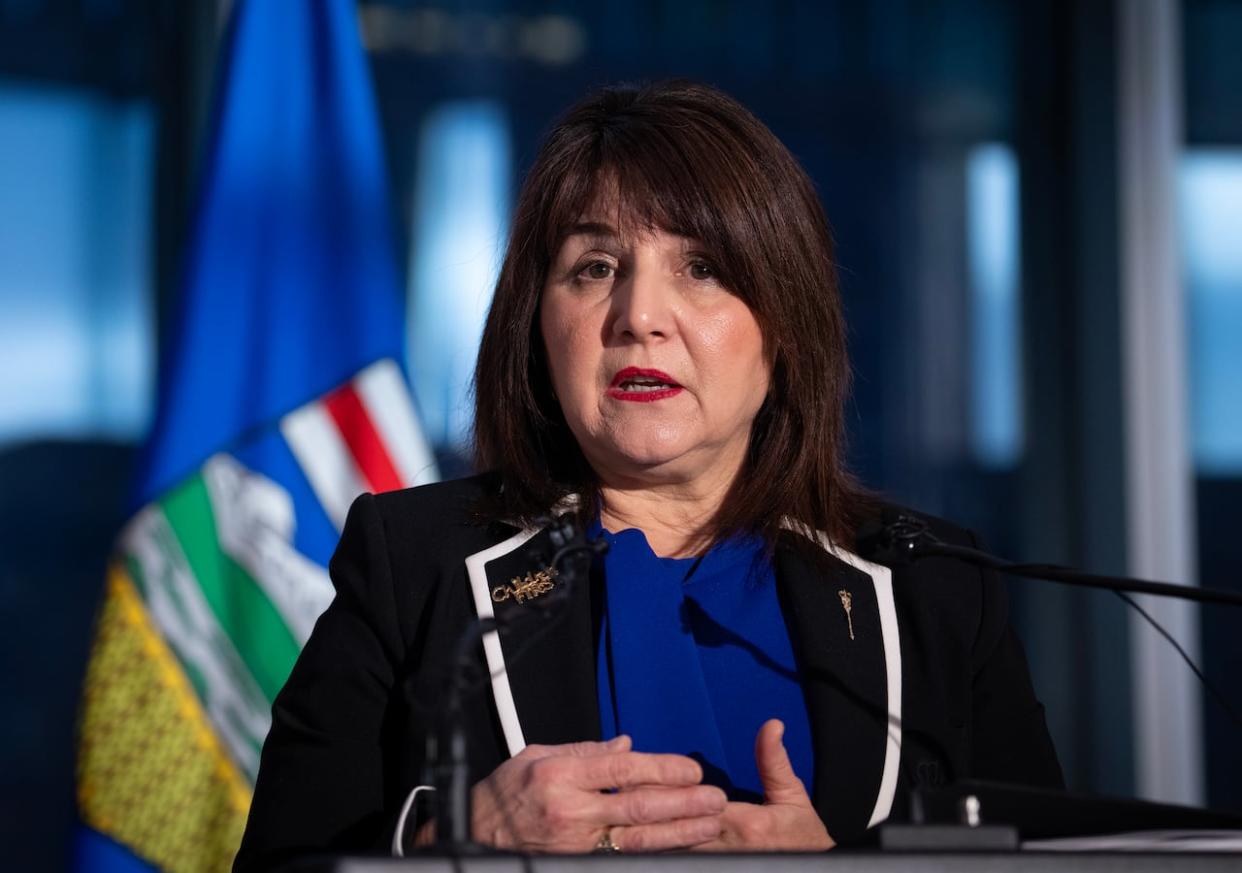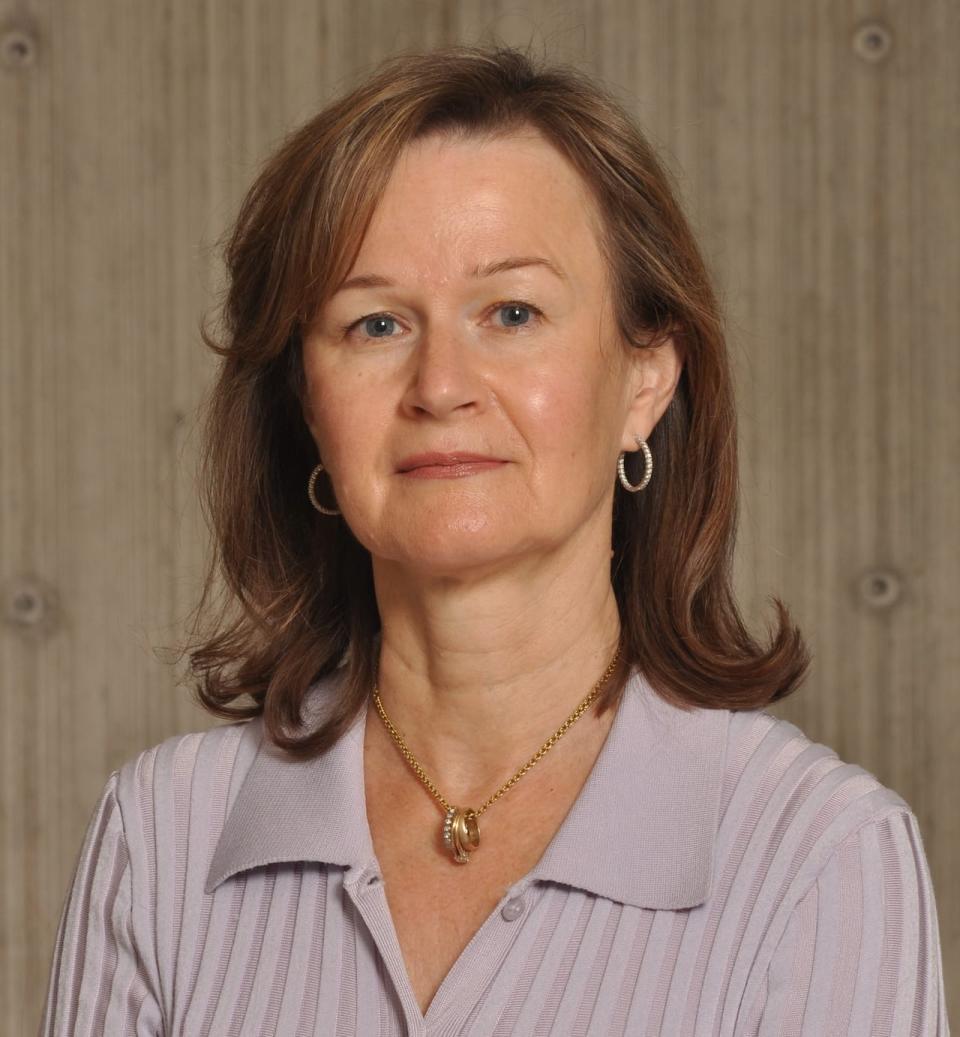Alberta government knew about NICU pressures before this week's letter from doctors

Front-line staff are pushing back against the provincial government's response to what they call a "crisis" in Alberta's neonatal intensive care units, calling it "short-sighted" and "frustrating."
A group of Edmonton doctors sent an open letter to the health minister this week, outlining concerns about a shortage of staff and beds in the province's NICUs.
But it wasn't the first time they'd raised the alarm.
There were earlier warnings in 2022 and 2023. And a private letter was sent to the health minister by neonatologists from Calgary and Edmonton in early February detailing the situation and asking for a meeting.
"I don't feel that we are fully being heard and fully being engaged with," said Dr. Alixe Howlett, a Calgary-based neonatologist who signed the February letter and said they have yet to get that meeting.
"That concerns us because we're not advocating for ourselves, we're advocating for our patients. And so their voices aren't being heard."
According to Howlett, two babies, on average, are transferred between Calgary zone hospitals every day due to bed and staffing shortages in neonatal intensive care units.
"We have been very clear what the resources needed are: beds and staff."
Earlier this week, Health Minister Adriana LaGrange did not answer directly when asked by CBC News about the February letter.
The health minister's office has since confirmed it received the February correspondence from Calgary and Edmonton neonatologists and an investigation was ordered into the concerns at the time.
But it wasn't until this week's letter, which was made public, that the minister expedited that work.
"The minister's office received the February letter, and directed officials to investigate the concerns," press secretary Andrea Smith said in a statement emailed to CBC News.
"At the time of the February letter, the department had already been engaging on how to address this issue. Alberta Health, AHS and Covenant Health have continued to work closely to address these concerns in short- and long-term planning for both capacity and workforce."
According to the minister's office, workforce and NICU capacity have been an ongoing issue that are monitored closely.
"After receiving a second letter this week, the minister directed the department to expedite this work."
When asked about her government's response at a Thursday news conference, Premier Danielle Smith pointed to her health-care restructuring plan .
"I would say our front-line workers are doing a tremendous job of being able to manage that patient flow. And if we need to have more staffing there to ensure that we can take some of the pressure off, that's what we're going to do. That's the whole reason for the refocusing."
Smith said her numbers, while they fluctuate, show that on Thursday, for example, there were dozens of open NICU beds across the province.
"We are always monitoring to make sure we have enough space."
Free beds but no staff
However, doctors say it may look that way on paper, but in reality they often don't have enough staff to use free beds.
And, if the beds are staffed, they aren't always in NICUs that provide the appropriate level of care, according to staff.
Calgary's Foothills Hospital, which handles high-risk deliveries and some of the sickest babies, houses 39 of Calgary's 126 NICU beds, according to Howlett.
That simply isn't enough, she says, noting a new NICU planned for the hospital is years away.
"We can never say no to these babies. [So] we transfer babies out," she said.
Earlier this week, LaGrange told reporters Alberta would airlift babies out of the province if needed. And while she's backed off of that message slightly, she still isn't ruling it out if needed.

Dr, Alixe Howlette is a neonatologist working in Calgary's five NICUs. (Alixe Howlett)
"It's not safe health care and it's frustrating because we've been calling for more beds and more staff for several years now," said Howlett, noting that moving vulnerable babies is risky and they often don't fare as well.
United Nurses of Alberta president Heather Smith said her union regularly hears concerns from members about staffing shortages in NICUs
"It's a crisis and we need commitments that this is not going to continue and that there's going to be an investment to ensure that babies are not placed at risk," said Smith.
"The minister knows it's an issue. The question is what is her government going to do, if anything, to turn it around? Turning it around includes infrastructure and making this province a magnet for health-care workers."
In an email, Dr. Amber Reichert, a neontaologist who signed this week's open letter, called the Alberta government's response "severely short-sighted."
"We desperately need more beds. We need those beds to be able to care for the most fragile and vulnerable population of Albertans. We need sufficient staff to meet the needs of those Albertans," said Reichert.
"Current staffing is inadequate to meet the acuity needs of those patients."
Reichert is also worried the division of health-care provision into four new organizations — through the health restructuring plan — has the potential to aggravate roadblocks to staff distribution that already exist in Edmonton, where NICUs are in hospitals run by both AHS and Covenant Health.
AHS has confirmed Alberta's neonatal intensive care units are running at between 90 and over 100 per cent capacity.
That's well above the 80 to 85 per cent safety threshold physicians say is needed to keep beds open — and staffed — to treat critically ill babies without delay.
According to Howlett, Calgary's recent population surge, including young families and newcomers who haven't always had good prenatal care, is adding to the pre-existing pressures.
"There's a huge strain on the system and it's just going to get worse."


